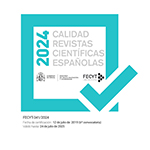The encoding of irrelevance in discourse: tanto between concession and justification
Résumé
he paper sets out to investigate the linguistic expression of irrelevance in discourse, by focusing on the functions and uses of the marker tanto in present-day Italian. The marker encodes the irrelevance of a given condition, thus conveying a concessive meaning not distant from the value expressed by concessive conditionals or ‘no matter’ predicates. In the construction [p, tanto q], the marker tanto conveys the fact that q holds in any case, namely whether p, non-p, or any value of p is the case. After discussing how the notion of irrelevance has been treated in the literature on conditionals, concessives and predicates of indifference, we will discuss the results of a corpus-based study on spoken Italian, identifying and annotating all the occurrences of irrelevance-tanto. We will show that irrelevance may be expressed by a number of different discourse patterns, explicitly mentioning the irrelevant proposition, the null-effect and the motivation for irrelevance, or omitting one or more of these components. It will be argued that the cases in which speakers simply refer to the irrelevance of a given proposition are rare in our sample, whereas it is more frequent that they also mention the motivation underlying irrelevance, justifying their indifference and thus crucially acting at the intersubjective level. We will show, indeed, that tanto may also be used alone as a discourse marker encoding the speaker’s attitude of indifference: in these cases, tanto is pronounced with suspensive intonation, and subsumes under its semantics the adversative, justificative, and indiscriminative value, activating meanings that speakers are supposed to share.
Téléchargements
##submission.format##
Licence
La revista Cuadernos de Filología Italiana, para fomentar el intercambio global del conocimiento, facilita el acceso sin restricciones a sus contenidos desde el momento de su publicación en la presente edición electrónica, y por eso es una revista de acceso abierto. Los originales publicados en esta revista son propiedad de la Universidad Complutense de Madrid y es obligatorio citar su procedencia en cualquier reproducción total o parcial. Todos los contenidos se distribuyen bajo una licencia de uso y distribución Creative Commons Reconocimiento 4.0 (CC BY 4.0). Esta circunstancia ha de hacerse constar expresamente de esta forma cuando sea necesario. Puede consultar la versión informativa y el texto legal de la licencia.










